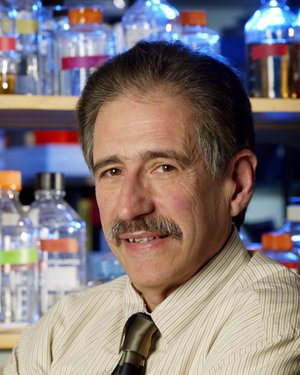Research Lab Results
-
Jonathan Jun Lab
The Jonathan Jun Lab studies the function of lipolysis in intermittent hypoxia-induced insulin resistance.
-
Thomas W. Donner Lab
The Thomas W. Donner Lab focuses on type 1 and type 2 diabetes, with an emphasis on the prevention of complications in patients with these conditions. We’re currently collaborating with Dr. Abdel Hamad to inhibit B-regulatory cell apoptosis through a novel monoclonal antibody that targets the probable apoptotic factor. We also lead a multi-center, international consortium of researchers studying ways to prevent type 1 diabetes and preserve insulin secretion in people who have been recently diagnosed with the chronic condition.
-
Todd Brown Lab
The Todd Brown Lab focuses on metabolic, endocrine and skeletal abnormalities in HIV-infected patients, particularly as these factors relate to aging. Our studies take an epidemiologic approach to understanding the occurrence and prevalence of insulin resistance, diabetes, and anthropometric changes in HIV patients and their relationship to antiretroviral treatment.
-
Rita Kalyani Lab
Research in the Rita Kalyani Lab examines the decreased physical functioning observed in patients with diabetes as they age. Through several ongoing epidemiological cohorts, we are investigating the association of high blood glucose and high insulin levels with accelerated muscle loss, and possible contributions to the physical disability observed in diabetes. We are currently involved in clinical studies that aim to understand the underlying mechanisms for these associations and to facilitate the development of novel strategies to prevent muscle loss and disability in people with diabetes.
-
Guang William Wong Lab
The Wong Lab seeks to understand mechanisms employed by cells and tissues to maintain metabolic homeostasis. We are currently addressing how adipose- and skeletal muscle-derived hormones (adipokines and myokines), discovered in our lab, regulate tissue crosstalk and signaling pathways to control energy metabolism. We use transgenic and knockout mouse models, as well as cell culture systems, to address the role of the CTRP family of hormones in physiological and disease states. We also aim to identify the receptors that mediate the biological functions of CTRPs.
-
William B. Guggino Lab
Work in the William B. Guggino Lab focuses on the structure of the cystic fibrosis transmembrane conductance regulator (CFTR) and water channels; the molecular structure of transport proteins in epithelial cell membranes; and gene therapies to treat cystic fibrosis (CF) patients. We are also working to identify CF’s specific defect in chloride channel regulation. One recent study showed that insulin-like growth factor 1 (IGF-1) enhances the protein expression of CFTR. -
Fu Lab
The Fu Lab is a basic research lab that studies zinc transport, with a particular focus on which step in the zinc transport process may be modulated and how. Dr. Fu's lab uses parallel cell biology and proteomic approaches to understand how these physiochemical principles are applied to mammalian zinc transporters and integrated to the physiology of pancreatic beta cells. This research has implications for understanding how zinc transport is related to diabetes and insulin intake. -
Ron Banerjee Lab
Our research aims to expand the understanding of how hormones regulate pancreatic islets in health and disease. Currently, a major focus of the lab is to define the normal adaptations of islets, particularly insulin-producing beta-cells, to the metabolic stress of pregnancy, and to determine how defective adaptation contributes to gestational diabetes mellitus (GDM). We anticipate that elucidating physiologic mechanisms of gestational beta-cell adaptation will identify novel therapeutic strategies to expand functional beta-cell mass which would help in the treatment of all types of diabetes.



